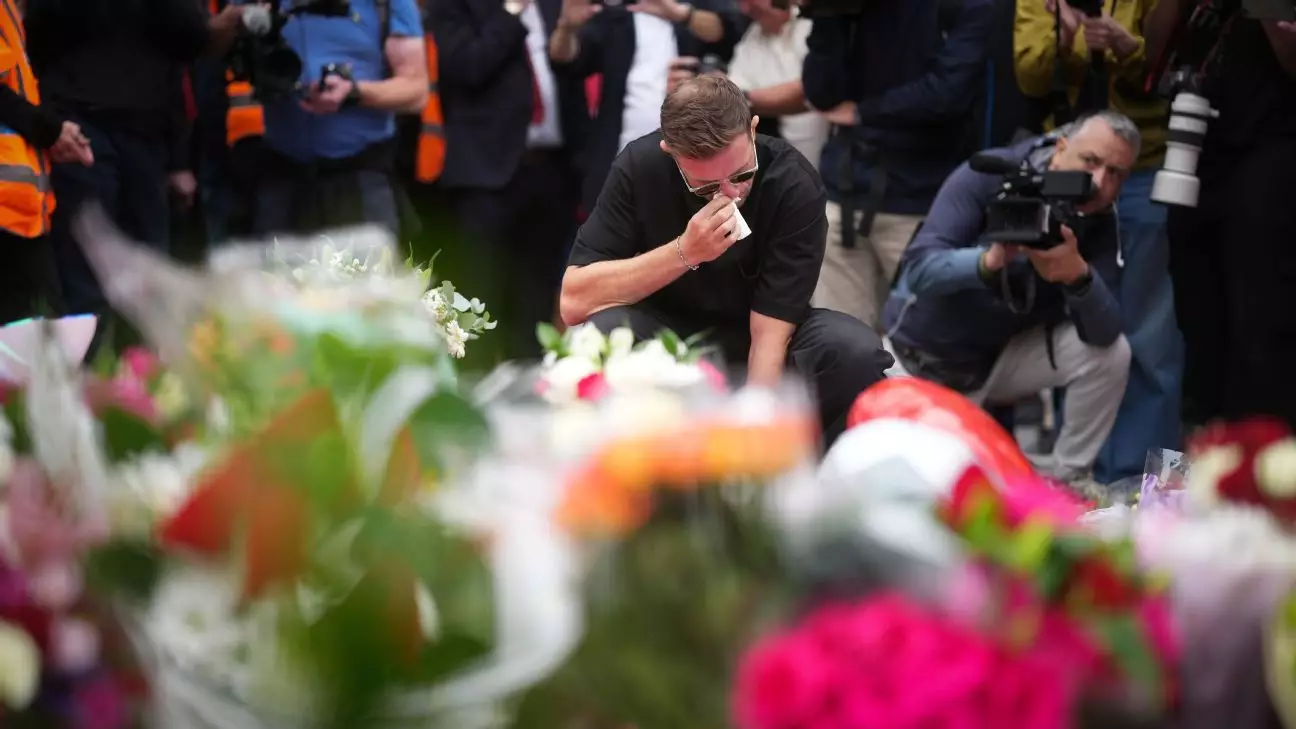The passing of Diogo Jota, a talented footballer whose life was tragically cut short in a car crash, shatters the myth of invulnerability we often cling to in our fast-paced world. At just 28, Jota’s death exemplifies how fragile life truly is—an undeniable reminder that no matter the fame, talent, or status, we remain vulnerable to the merciless hand of fate. His departure is not just a loss for Liverpool or football but a stark symbol of life’s fleeting nature. In a society that often glorifies youth and success, Jota’s tragic end pulls into sharp focus the cruel randomness with which tragedy can strike, regardless of our efforts to protect ourselves.
This tragic event raises critical questions about safety, societal neglect, and the dehumanizing aspects of modern life. We are urged to reflect on how quickly happiness can turn into grief and how uncertainty lurks just beneath the surface of everyday routines. The suddenness accompanying such loss exposes the superficiality of our pursuits and reminds us of the importance of cherishing genuine human connections amid the chaos of a competitive world.
Remembrance and the Confrontation of Mortality
The vivid public expressions of grief from teammates and friends serve as a testament to the profound impact Jota had—not just as a player but as a man. Jordan Henderson’s tearful tribute, along with Virgil van Dijk’s heartfelt words, command us to face uncomfortable truths about mortality and emotional vulnerability. These memorials illuminate a facet of human existence that society prefers to suppress: our collective mortality and the agony of losing loved ones unexpectedly.
In a society laddered with glossed-over discomfort regarding death, these raw displays of emotion challenge us to confront our own mortality. Humans have an innate resistance to contemplating death, but tragedies like this are vital for forcing that confrontation—an essential step toward empathy. Such public mourning underscores the importance of emotional openness and human solidarity, encouraging us to prioritize authentic relationships over superficial distractions.
Moreover, Jota’s tragic death starkly highlights how life’s meaning often resides in family and personal bonds rather than superficial pursuits like fame or material success. The fact that Jota recently became a husband and father underscores the profound significance of these intimate relationships—reminding us that in the end, it is love and family that truly define our existence. Society’s focus on external achievements needs recalibration to appreciate the importance of emotional depth and human connection.
The Societal Significance of Collective Mourning
Public tributes from high-profile figures like Mohamed Salah and Trent Alexander-Arnold serve as reminders that grief, when shared collectively, can foster resilience and communal healing. The outpouring of support at Anfield and beyond demonstrates how vulnerable communities can come together to process grief. This collective mourning act isn’t merely about honoring one individual but symbolizes our societal need for empathy, unity, and compassion in times of crisis.
From a broader perspective, these displays expose the societal tendency to idolize sports figures while sometimes neglecting their humanity. Jota’s death strips away the veneer of celebrity, revealing the raw human emotional core beneath. It urges us to remember that athletes—despite their fame—are susceptible to the same fears, losses, and heartbreaks as anyone else.
This tragedy pushes us to reconsider societal priorities: do we invest enough in mental health awareness, safety measures, and community support systems? Are we fostering genuine compassion in our social fabric? The collective pall cast over Liverpool exemplifies how societies can rally around shared grief, affirming that our interconnectedness is our strength. We are reminded that beneath the facades of success, everyone carries the universal human burden: mortality, love, and loss.
A Dialogue on Humanity and Societal Values
In the face of such devastating loss, society must reevaluate its values. The narrative should shift from glamourizing success at any cost to emphasizing the importance of compassion, vulnerability, and genuine relationships. Jota’s story invites a broader discussion on how we care for each other, especially in a world increasingly driven by individualism and superficial achievements.
The tragedy underscores that beyond the headlines and social media tributes lies a deeper call to action. It beckons us to cultivate societies rooted in kindness and support, where tragedies are moments for collective reflection rather than mere sensationalism. The focus should be on fostering resilient communities capable of providing emotional safety nets for those enduring loss. Only then can we hope to mitigate the ripple effects of sudden tragedies and build a more empathetic society that values human life above fleeting fame.
Real change requires confronting uncomfortable truths, acknowledging our collective fragility, and prioritizing compassion over superficial pursuits. Diogo Jota’s death is more than a fleeting news story—it’s an urgent reminder that beneath our surface lives lies a shared vulnerability, demanding societal growth rooted in empathy, respect, and genuine human connection.


Leave a Reply